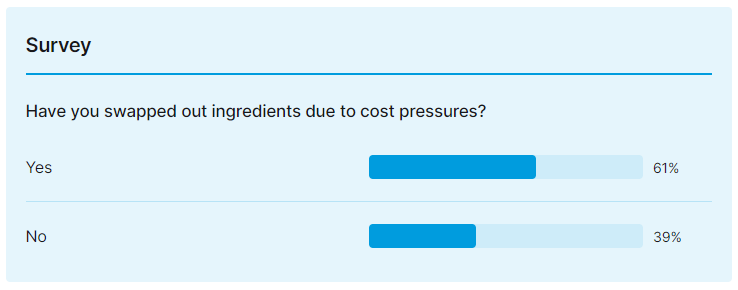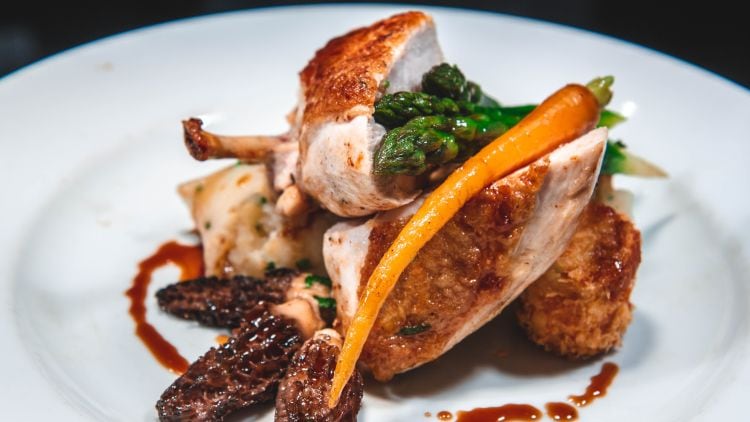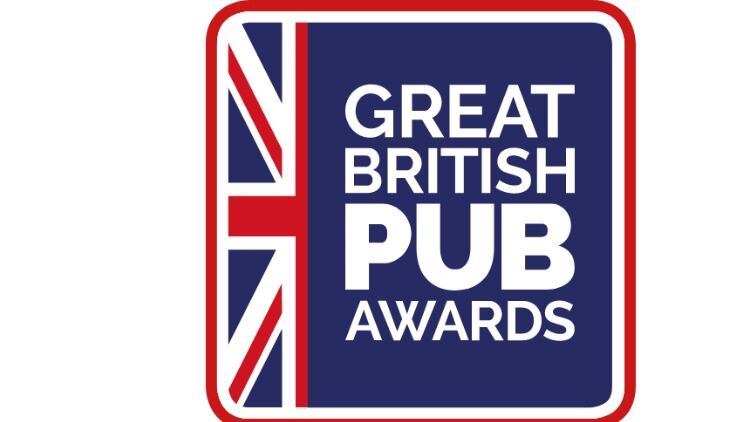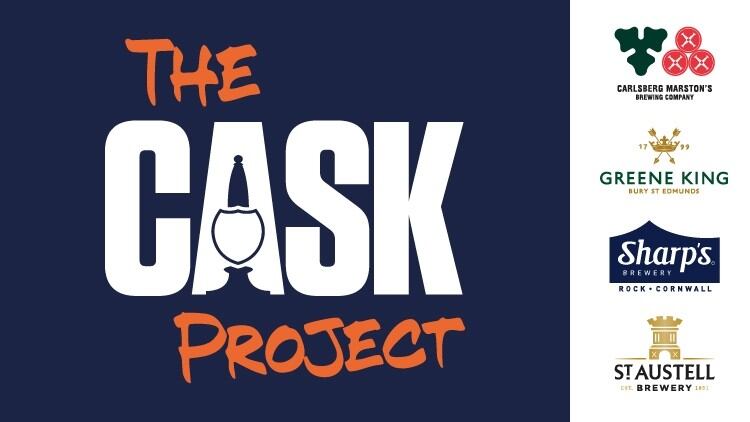This comes after inflation hit a 40-year high of 9% on Wednesday (18 May) fuelling soaring ingredients prices. This adds to the tsunami of cost pressures faced by the sector including rising wages and increased VAT, forcing pubs to adopt creative solutions to keep costs down.
According to Brendan Padfield, owner of the Unruly Pig in Bromeswell, Suffolk, inflation was a “plague on everyone’s house”.
“Inevitably, some accommodations need to be made as we try and balance this very difficult, inflationary equation with what the customer is willing to pay,” he said.

Recently, the gastropub served a wild brill dish, but to make margin, they needed to price it over £38. In the end, the chef had to substitute it with a cheap addition, namely bass. “The wild sea bass is still great, but it's not brill,” said Padfield.
"Some accommodations need to be made as we try and balance this very difficult, inflationary equation with what the customer is willing to pay.”
According to the operator, there was a disconnect between what customers saw in the supermarket and what they saw in the restaurant. He believed there was still the perception pubs should be able to absorb the inflationary costs.
Kitchen nightmare
“I still get customers commenting that we've put our prices up,” said Padfield. “I'm hoping the realisation that this is hitting everyone across the board will mean we'll get less comments like that going forwards.”
Marc Bridgen, owner of the Dog at Wingham commented: “In a nutshell, it's a nightmare. Every dish is under constant review, and we’re doing different styles of dishes we've not previously done.”
Chefs at the Kent-based gastropub were tasked with figuring out the cost price of dishes on a weekly basis to combat “staggering” hikes in ingredients prices.
Previously, the team had been serving an à la carte restaurant menu at lunch and dinner six days a week, then doing a Sunday roast menu on Sundays. However, cost pressures meant the lunch menu had to be “completely changed”.
Rather than it being a restaurant-style assortment of dishes, the main lunch menu now includes sandwiches, and a burger has replaced veal steak as the red meat option. What’s more, the fish and chips dish, which was typically compromised of haddock or cod, now was served with whatever white fish the fishmonger was offering at the best value.
Strategic thinking
“We’ve had to make lunchtime far more accessible, and we are choosing ingredients that enable us to either make dishes better value, or we're choosing ingredients that give us half a chance to make any margin,” said Bridgen.
He added: “The result is either keeping the same prices your guests are used to and not making any margin or having to work smart to give yourself an opportunity of making a margin.”
“In a nutshell, it's a nightmare. Every dish is under constant review, and we’re doing different styles of dishes we've not previously done.”
However, there were key ingredients that couldn’t be switched despite their soaring prices, including oil and tomatoes. Bridgen said: “We’ve got a heritage tomato salad side dish, but it's become unserviceable, so it's had to come off the menu.
“We were charging £10 for the salad, but you can't make that a £10 side dish because the cost of the ingredients has doubled.”
The chefs were also enacting a process of ‘shrink-flation’. This meant keeping dishes’ original ingredients yet reducing portion sizes to sell them at the same price.
“It’s a way of still giving the guest what they want but not charging the earth for them,” Bridgen added.
Another challenge the operator was facing was the volatility of prices. “One of our signature dishes is a lobster ravioli. It’s a starter, and we’re seeing prices fluctuate from anything between £20 to £40 a kilo”, he said.
Ever-changing menus
He continued: “You have your menu on your website, and it could be changing daily based on availability [of food items].
“Some customers do get a bit disgruntled when they’ve seen a menu, and they come in and it’s quite different. It’s only different because we either can’t source things or costs have gone through the roof overnight.”
There was commotion in pubs around the country with operators feeling financial pressure across the board. For instance, Matt Palmer, the Sportsman, Seasalter, Kent owner said chefs were changing the pub menu nearly every day, after trying to do specials and cut down on the number of dishes served.
This included substituting one fish for another as the previous one got more expensive. If prices went up again, Palmer said the fish would have to be taken off the menu.
The Parkers Arms chef-patron Stosie Madi had been working closely with suppliers to keep costs down. “[We are] using the best local seasonal produce sensibly while still offering premium fish and meat with supplements for those who can afford a higher spend,” she commented.
Madi believed the rural location of the Lancashire-based gastropub paired with the “horrendous” rise in fuel prices made a trip to her site an “extravagant extra spend” for guests.
Cutting costs, keeping quality
“As a destination pub we rely on visitors and that is quite an ask these days,” she said, “therefore, giving value for money while offering top quality produce is going to be crucial for our business.”
The Magdalen Arms operator Florence Fowler in Oxford, Oxfordshire agreed food items were “hugely expensive” which meant the pub had hiked its prices.
While Heath Ball, operator of the Red Lion & Sun in Highgate, north London, had not had to switch out ingredients due to costs, supply still remained an issue.
Ball had increased the amount he spoke to suppliers to find out where there were good deals of produce without sacrificing quality. However, he thought some suppliers were being opportunist by bumping up prices while everyone else was too.
“The real challenge beyond supply and those rising costs,” he believed, “is just how much can you realistically pass onto a consumer who is already under fiscal pressure.”




